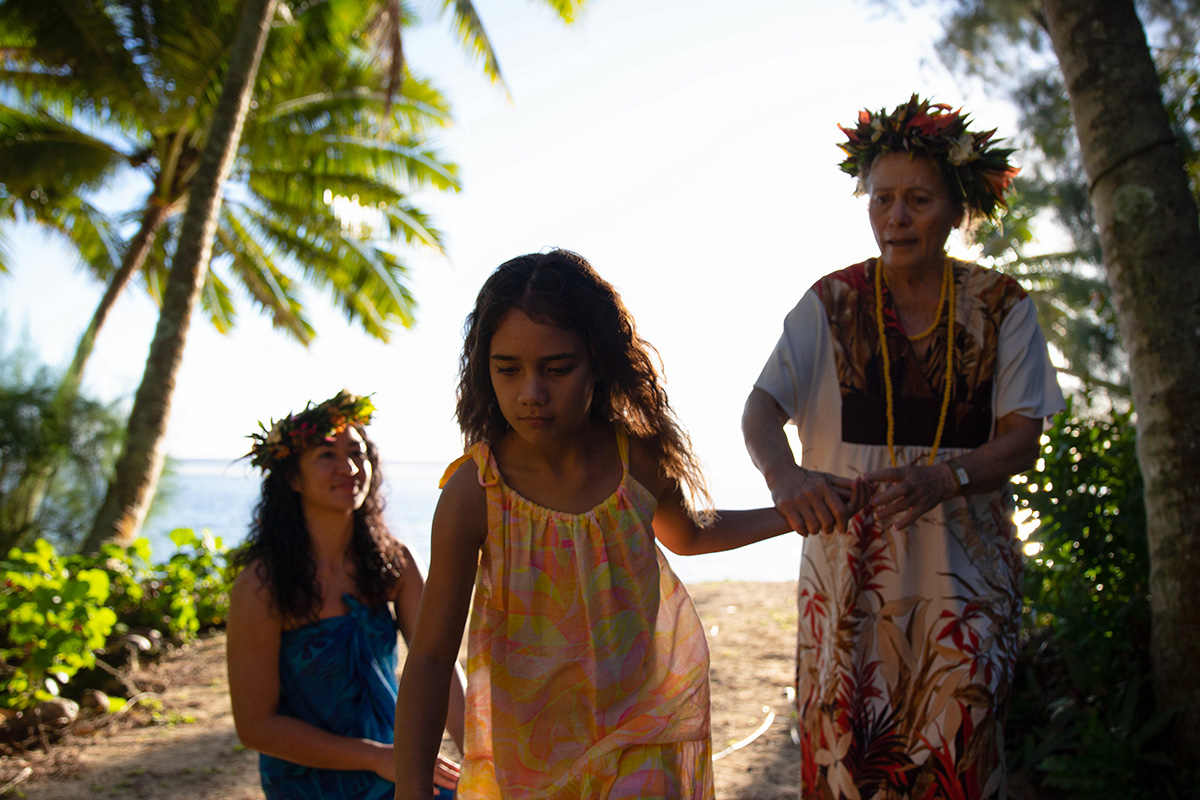View original press release on Smithsonian Newsdesk
The Smithsonian’s Recovering Voices Initiative will host a film festival that showcases films from around the world. Centered around the United Nation’s International Mother Language Day Feb. 21, the fifth annual Mother Tongue Film Festival will offer visitors the opportunity to see 21 films featuring 28 languages from 22 regions and hear from filmmakers who explore the power of language to connect the past, present, and future. The four-day festival runs February 20 to 23.
“The Mother Tongue Film Festival provides a forum for conversations about linguistic and cultural diversity,” said Joshua Bell, curator of globalization at the Smithsonian’s National Museum of Natural History and director of the Smithsonian’s Recovering Voices Program. “It gives the public an opportunity to talk with directors, producers and scholars who devote their lives to documenting the human experience.”
Screenings will take place at multiple locations across the Smithsonian and Washington, D.C. A complete schedule of screenings, including times and locations, is available on the festival’s website. Doors will open approximately thirty minutes before each show. All screenings are free and open to the public, with weekend programming for families.
The festival kicks off with an opening reception Thursday, February 20, at 6 p.m. at the Smithsonian’s National Museum of the American Indian. Festival highlights include:
- A performance by Uptown Boyz, a local intertribal drum group, before the screening of Restless River February 20 at 7 p.m. in the National Museum of the American Indian’s Potomac Atrium. The film is set at the end of World War II and follows a young Inuk woman as she comes to terms with motherhood after being assaulted by a soldier. It is based on Gabrielle Roy’s 1970 short novel, Windflower (La Riviere Sans Repos). This film contains a scene of sexual violence that some viewers may find disturbing.
- The world premiere of Felicia: The Life of an Octopus Fisherwoman February 21 at 11 a.m. in the National Museum of Natural History’s Q?rius Theater. Felicia is one of the thousands of Malagasy fishermen and women on the Velondriake archipelago whose way of life is increasingly threatened by poverty and political marginalization. As an orphan and later as a mother, she turns to the sea as a means for sustenance, even when migration and commercial trawling threaten small-scale fishing operations. Like many other women in Madagascar, she embodies a steadfast willingness to keep moving forward in the face of major challenges.
- The North American premiere of Ainu: Indigenous People of Japan February 22 at noon in the National Museum of Natural History’s Baird Auditorium. The film tells the stories of four elders from the declining Ainu population in Japan. It sheds light on their traditions, both past and present, and the efforts to keep the culture and language alive in Japan. A Q&A with the director will follow the screening.
- Age-appropriate viewers can enjoy Québec beer courtesy of the Québec Governmental Office during a late-night screening of Blood Quantum February 22 at 8 p.m. in New York University Washington, D.C.’s Abramson Family Auditorium. The dead come back to life outside the isolated Mi’gmaq reserve of Red Crow, except for its Indigenous inhabitants who are strangely immune to the zombie plague. The local tribal law enforcement officer must protect his son’s pregnant girlfriend, apocalyptic refugees and the drunken reserve riff raff from the hordes of walking corpses infesting the streets of Red Crow. This film contains strong bloody violence and may not be suitable for younger audiences.
- A screening of One Day in the Life of Noah Piugattuk February 23 at 3 p.m. in Georgetown University’s ICC Auditorium. The film is set in April 1961 as the Cold War heats up in Berlin and nuclear bombers are deployed from bases in the Canadian Arctic. In Kapuivik, north of Baffin Island, Noah Piugattuk’s nomadic Inuit band live and hunt by dog team as his ancestors did. When an agent of the Canadian government arrives, what appears as a chance meeting soon opens the prospect of momentous change, revealing Inuit-settler relationships humorously and tragically lost in translation. The events playing out in this film are depicted at the same rate as the characters experienced them in real life.
The Mother Tongue Film Festival is presented by Recovering Voices, a collaboration between the National Museum of Natural History, National Museum of the American Indian and the Smithsonian’s Center for Folklife and Cultural Heritage. This program received support from the Embassy of Canada, the University of Edinburgh, New York University at Washington, D.C., the Québec Governmental Office in Washington, D.C., Eaton Workshop DC, and the Georgetown University Department of Anthropology.
About Recovering Voices
Recovering Voices is an initiative of the Smithsonian founded in response to the global crisis of cultural knowledge and language loss. It works with communities and other institutions to address issues of Indigenous language and knowledge diversity and sustainability. Recovering Voices is a collaboration between staff at the National Museum of Natural History, the National Museum of the American Indian and the Center for Folklife and Cultural Heritage.


